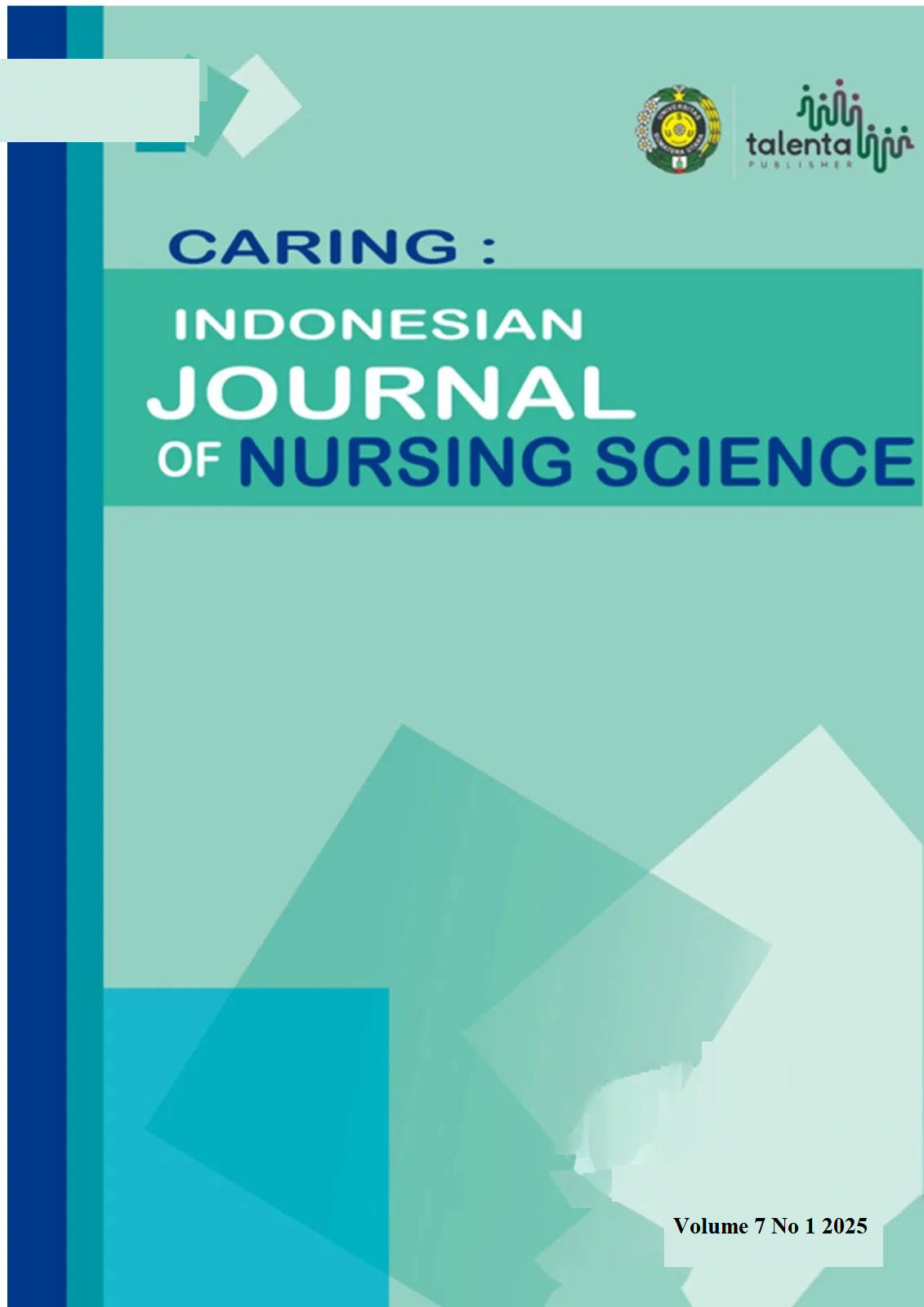Adherence to Oral Antidiabetic Drugs among Outpatients with Type 2 Diabetes Mellitus
DOI:
https://doi.org/10.32734/ijns.v7i1.20275Keywords:
Diabetes Mellitus, Medication Adherence, Hypoglycemic Agents, OutpatientsAbstract
Type 2 diabetes mellitus (T2DM) patients are often required to adhere to oral antidiabetic drugs (OADs) prescribed by healthcare professionals for maintaining optimal blood glucose levels. Therefore, this study aims to assess adherence to OADs among outpatients with T2DM. A descriptive cross-sectional design was used, involving 32 participants selected through convenience sampling at Adam Malik General Hospital in Medan, North Sumatra, Indonesia. Data collection was conducted in July 2024, and descriptive statistics were used to analyze adherence levels and sociodemographic characteristics. The results showed that the majority of participants were under 60 years of age (68.8%), male (65.6%), had completed high school education (59.4%), were employed (71.9%), and had a monthly household income below the regional minimum wage (65.6%). In addition, more than 50% had been living with diabetes for five years or longer (53.1%), were covered by national health insurance (90.6%), resided in urban areas (62.5%), and had no diabetes-related complications (81.3%). The mean adherence score to OADs was 6.66 (SD ±1.20), with moderate adherence being the most common (56.3%), followed by high (28.1%) and low levels (15.6%). The results also showed that only a limited number of T2DM patients exhibit optimal adherence to their treatment regimens. This shows the need for healthcare providers and relevant stakeholders to develop targeted interventions and support systems aimed at enhancing medication adherence among diabetic patients.
Downloads
Downloads
Published
How to Cite
Issue
Section
License
Copyright (c) 2025 Caring: Indonesian Journal of Nursing Science

This work is licensed under a Creative Commons Attribution-ShareAlike 4.0 International License.








